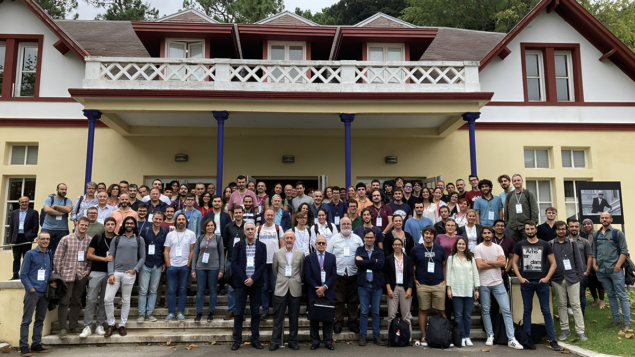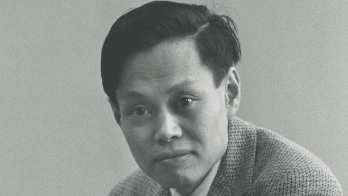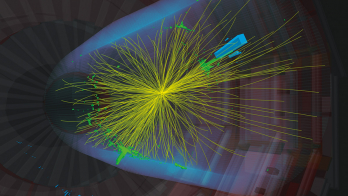50 years of IMFP23 and CPAN Days.

The golden jubilees of the International Meeting on Fundamental Physics (IMFP23) and the National Centre for Particle Physics, Astroparticles and Nuclear Physics (CPAN) Days were celebrated from 2 to 6 October 2023 at Palacio de la Magdalena in Santander, Spain, organised by the Institute of Physics of Cantabria (IFCA). More than 180 participants representing the entire Spanish community in these disciplines, together with several international researchers, convened to foster cooperation between Spanish research groups and identify key priorities.
The congress started with parallel meetings on LHC physics, astroparticle physics, nuclear physics and theoretical physics. Two extra sessions were held, one covering technology transfer and the other discussing instrumentation R&D aimed at supporting the HL-LHC, future Higgs factories, and other developments in line with the European strategy for particle physics. The opening ceremony was followed by a lecture by Manuel Aguilar (CIEMAT), who gave an overview of the past 50 years of research in high-energy physics in Spain and the IMFP series. The first edition, held in Formigal (Spanish Pyrenees) in February 1973, was of great significance given the withdrawal of Spain from CERN in 1969, which put high-energy physics in Spain in a precarious position. The participation of prestigious foreign scientists in the first and subsequent editions undoubtedly contributed to the return of Spain to CERN in 1983.
LHC physics was one of the central themes of the event, in particular the first results from Run 3 as well as improvements in theoretical precision and Spain’s contribution to the HL-LHC upgrades. Other discussions and presentations focused on the search for new physics and especially dark-matter candidates, as well as new technologies such as quantum sensors. The conference also reviewed the status of studies related to neutrino oscillations and mass measurements, as well as searches for neutrinoless double beta decay and high-energy neutrinos in astrophysics. Results from gamma-ray and gravitational-wave observatories were discussed, as well as prospects for future experiments.
The programme included plenary sessions devoted to nuclear physics (such as the use of quantum computing to study the formation of nuclei), QCD studies in collisions of very high-energy heavy ions and in neutron stars, and nuclear reactions in storage rings. New technologies applied in nuclear and high-energy physics and their most relevant applications, especially in medical physics, complemented the programme alongside an overview of observational cosmology.
Roundtable discussions focused on grants offered by the European Research Council, R&D strategies and, following a clear presentation of the perspectives of future accelerators by ECFA chair Karl Jacobs (University of Freiburg), possible Spanish strategies for future projects with the participation of industry representatives. The congress also covered science policy, with the participation of the national programme manager Pilar Hernández (University of Valencia).
Prior to the opening of the conference, 170 students from various schools in Cantabria were welcomed to take part in an outreach activity “A morning among scientists” organised by IFCA and CPAN, while Álvaro de Rújula (University of Boston) gave a public talk on artificial intelligence. Finally, an excellent presentation by Antonio Pich (University of Valencia) on open questions in high-energy physics brought the conference to a close.







